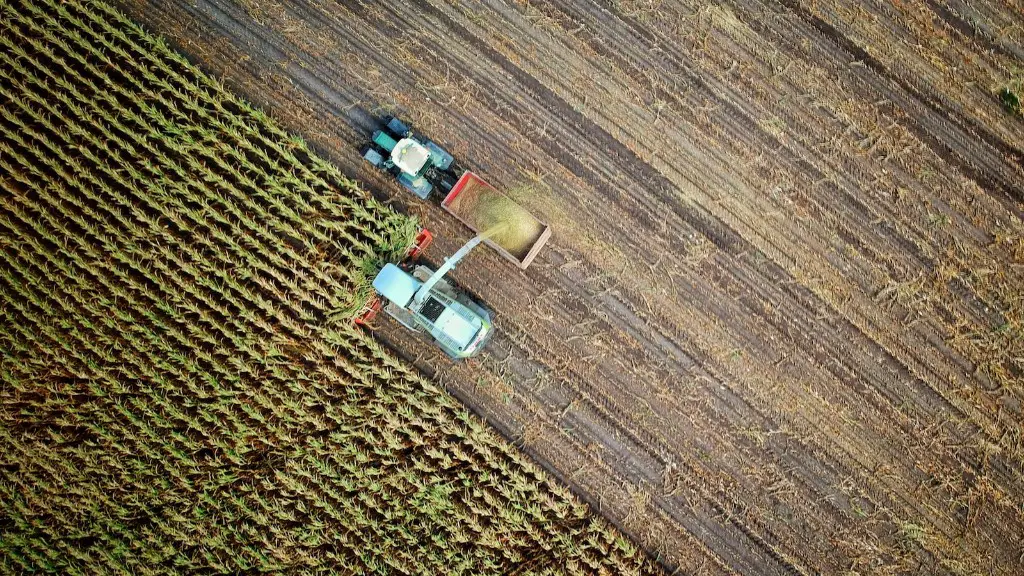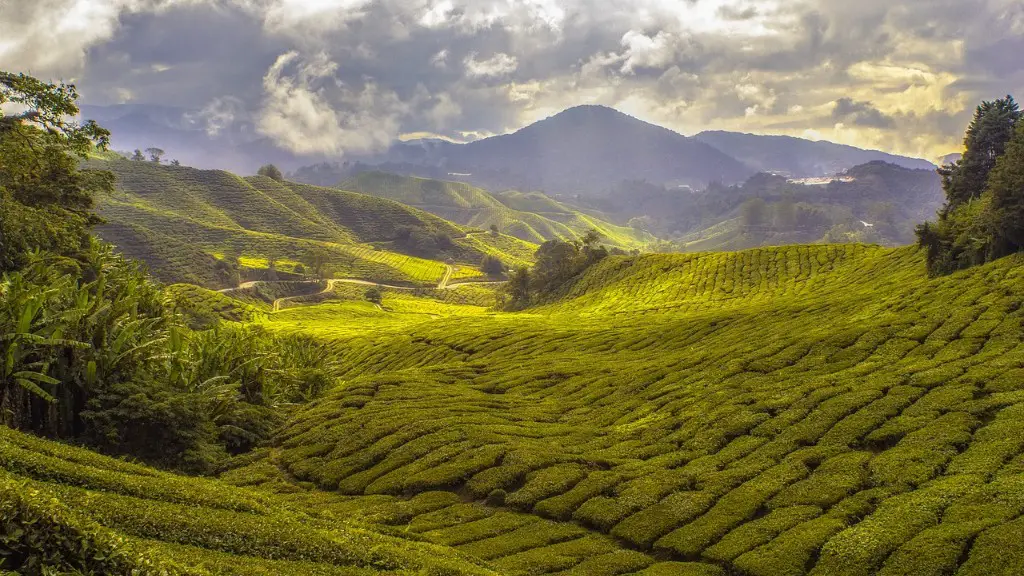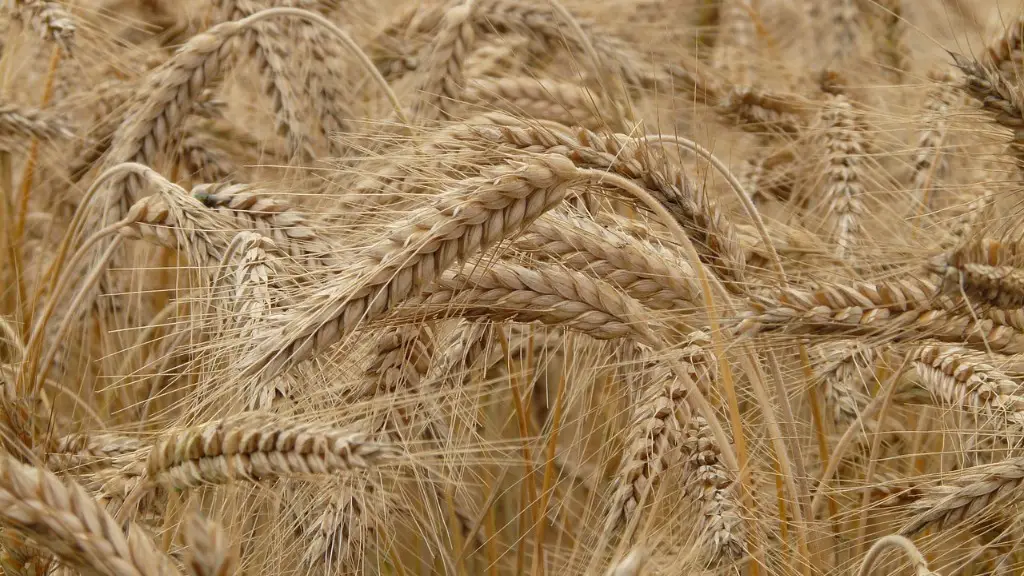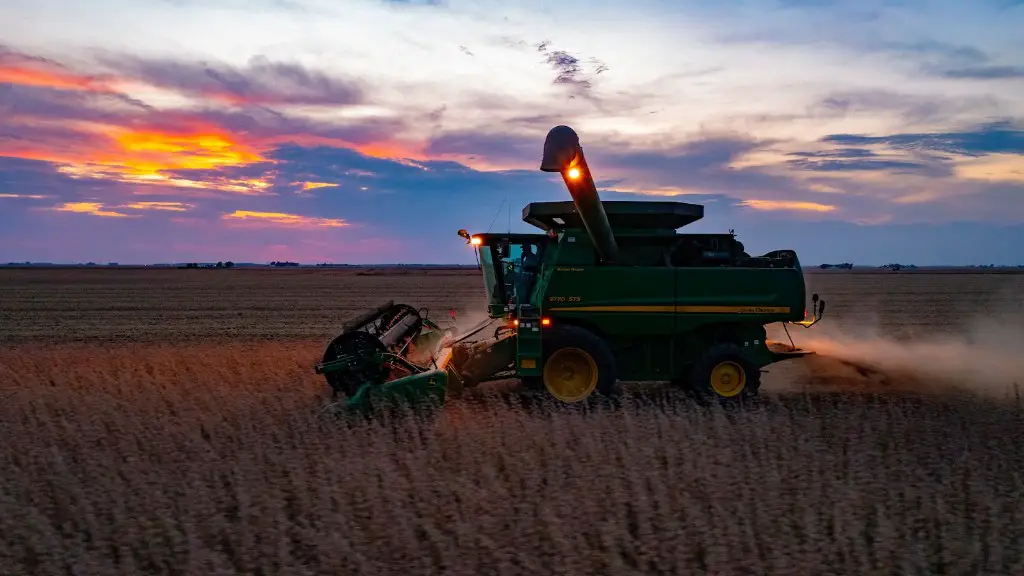In Africa, the majority of the population is employed in the agricultural sector. It is estimated that 60-70% of the workforce is engaged in this sector. The sector is a vital part of the economy, providing food and other products for both domestic and export markets. The sector also contributes significantly to government revenue.
The vast majority of Africans work in the agricultural sector. Out of the continent’s 1.1 billion people, roughly 60 percent are employed in agriculture.
What percent of Africa works in agriculture?
The agricultural sector is a vital part of the African economy, accounting for 438 percent of total employment as of 2020. The sector has seen strong growth in recent years, with employment rising from 2010 to 2020. The sector is a major source of livelihoods for many African households and plays a key role in the continent’s food security.
The majority of the African population relies on subsistence farming, which means that they grow just enough food to feed themselves and their families. This way of life is very difficult, as the farmers must contend with droughts, pests, and other natural disasters. Even though 61 percent of the African population are farmers, they only make up a small percentage of the world’s farmers. This is due to the fact that Africa is a very large continent with a lot of land.
How many Africans are involved in agriculture
Africa is a continent with a rich history and culture. Unfortunately, it is also a continent that is often associated with poverty and hunger. This is due in part to the fact that a large percentage of the population is dependent on agriculture for their livelihoods. In fact, according to recent estimates, approximately 70% of Africans are dependent on agriculture.
This dependence on agriculture has a number of implications for the continent as a whole. First and foremost, it means that the economies of all African countries are highly dependent on the sector. This is because the sector provides employment for a large number of people and also generates a significant amount of revenue.
Secondly, the sector is also critical in terms of food security. This is because a large percentage of the food that is consumed on the continent is produced by small-scale farmers. As a result, if the sector is not performing well, it can have a serious impact on the food security of the continent.
Finally, the sector is also important in terms of the environment. This is because agriculture is a major source of greenhouse gas emissions. In fact, according to some estimates, the sector is responsible for approximately 10% of all emissions.
Clearly, the agriculture sector is critical to the economies
Africa’s agricultural sector is of critical importance to the continent’s economy. More than 60 percent of the population of sub-Saharan Africa is smallholder farmers, and about 23 percent of sub-Saharan Africa’s GDP comes from agriculture.
The sector is however facing significant challenges. Agricultural productivity in Africa is low, and the sector is not sufficiently diversified. There is also a lack of access to markets and to quality inputs, and weak linkages between smallholders and value chains.
Despite the challenges, there is considerable potential for the sector to grow and contribute even more to Africa’s economy. With the right policies and investments in place, the sector can create jobs, reduce poverty, and drive economic growth.
How do most Africans make a living?
Africa’s climate is highly variable, with large variations in temperature and rainfall between regions. This makes it difficult to generalize about the continent’s agriculture. However, climatic factors play a significant role in Africa’s agriculture, which is considered the continent’s single most important economic activity. Agriculture employs two-thirds of the continent’s working population and contributes 20 to 60 percent of every country’s gross domestic product (GDP). The majority of Africa’s farmers are small-scale subsistence farmers who are highly vulnerable to changes in the climate. Drought is a major problem in Africa, and climate change is likely to make it worse. In recent years, droughts have caused widespread food shortages and devastating famines in Africa. Climate change is also likely to increase the spread of pests and diseases, which could have a devastating impact on Africa’s agriculture.
Africa’s agriculture sector is the largest in the world, accounting for 15% of the continent’s GDP. The sector employs millions of people and provides food for billions. Despite its importance, the sector is often undervalued and underfunded. This needs to change if Africa is to achieve its full potential.
What ethnicity are most farmers?
The most common ethnicity among farmers is White, which makes up 864% of all farmers. Comparatively, there are 76% of the Hispanic or Latino ethnicity and 29% of the Unknown ethnicity.
It is widely accepted that small-scale farming is key to alleviating poverty and hunger in Africa. However, there are major obstacles that limit the success of small-scale farming in Africa. These obstacles can be categorized in four sections, namely: climate, technology and education, financing and policy and infrastructure.
Climate change is a major challenge for small-scale farmers in Africa. Droughts and floods are becoming more frequent and unpredictable, making it difficult for farmers to plan and prepare for the planting season. In addition, higher temperatures and changes in precipitation patterns are making it difficult to grow traditional crops. As a result, farmers are being forced to experiment with new, often less productive, crops.
Technology and education are also major obstacles to small-scale farming in Africa. Many small-scale farmers do not have access to the latest farming techniques and technologies. In addition, they often lack the education and skills needed to use these technologies effectively. As a result, they are often at a disadvantage compared to large-scale commercial farmers.
Financing is another major obstacle to small-scale farming in Africa. Small-scale farmers often lack the capital needed to invest in new technologies and equipment. They also often have difficulty accessing credit. As a result
Is Africa rich in agriculture
Africa’s agriculture is incredibly important – it employs a huge number of people and contributes a great deal to each country’s economy. It’s vital that African countries continue to invest in agriculture and support their farmers so that they can continue to thrive.
The agriculture sector is a critical part of the Indian economy, providing livelihood to over 151 million people. Approximately 60 percent of the Indian population works in the industry, contributing about 18 percent to India’s GDP. The sector is also a major source of exports, with agricultural exports accounting for around 15 percent of India’s total exports.
How big is the agriculture industry in Africa?
The primary sector, which includes agriculture, forestry, fishing, and mining, is a critical sector of Africa’s economy. In 2020, the sector employed approximately 44 percent of Africa’s working population. The number of people employed in the primary sector grew from around 197 million in 2011 to 226 million in 2021. The sector is a significant contributor to Africa’s GDP, accounting for approximately 10 percent of the continent’s GDP in 2020.
The agricultural and food sectors are vital to the US economy, supporting over 211 million jobs in 2021. This includes 26 million jobs directly on farms, accounting for 13 percent of US employment. The sector is expected to continue to grow in the coming years, providing even more opportunities for American workers.
Does Africa has very low agricultural productivity
It is clear that the productivity of Africa’s agriculture is low. This is due to a number of factors, including the continent’s crop yields have lagged behind the rest of the world. More than half of the labour force work in agriculture, and the labour productivity very low. The agriculture ‘value added’ per worker in Sub-Saharan Africa is less than half the global average.
There are a number of reasons for this low productivity. One is that the technology and know-how available to farmers in Africa is often outdated and not as effective as what is used in other parts of the world. Another reason is that African soils are often poor in nutrients, making it difficult to grow crops successfully. Finally, the lack of infrastructure in many parts of Africa makes it difficult for farmers to get their products to market.
It is clear that improved productivity in Africa’s agriculture sector is urgently needed. This will require investments in both technology and infrastructure. It will also require policies that support small-scale farmers and help them to access markets.
Many African farmers lack the basic things many farmers outside the region take for granted, like access to improved crop varieties, fertilizers, and irrigation Although some progress has been made, addressing these weaknesses by themselves is not enough. African farmers need better infrastructure, such as roads and storage facilities, to get their goods to market, and more investment in education and research to develop new technologies that are appropriate for the local conditions.
What percentage of Nigerians are farmers?
Crop farming is a key activity for Nigerians, with 70 percent of households participating in this activity, according to the most recent data. This is followed by livestock ownership or raising, at 41 percent. These two agricultural activities are important for the Nigerian economy and provide livelihoods for many households across the country.
Africa is home to an abundance of natural resources including gold, chromium, platinum, cobalt, diamonds, and uranium. These resources account for a significant portion of the world’s total reserves, making Africa a vital part of the global economy. However, due to political and economic instability in many African countries, these resources are often underutilized or exploited, resulting in negative repercussions for the continent’s people and economy.
Warp Up
The majority of Africans work in the agricultural sector. It is estimated that around 60-70% of the labor force is employed in agriculture.
Africa is a continent with a rich history and culture. Though the continent has many different countries, they share some commonalities. One of these is the fact that a large percentage of the population works in agriculture. In fact, according to the World Bank, 64% of Africans are employed in the agricultural sector. This is significantly higher than the global average of 29%.
There are many reasons for this. One is that Africa is home to many smallholder farmers who grow food for their families and communities. This type of agriculture is often labor-intensive, as farmers must clear land, plant seeds, and harvest crops by hand. Additionally, large commercial farms also employ a significant number of workers. These farms typically use mechanized equipment to grow crops or raise livestock.
Despite the large number of Africans employed in agriculture, the sector faces many challenges. One challenge is the effects of climate change, which can lead to drought and crop failures. Additionally, the sector is often underfunded, which makes it difficult for farmers to access the resources they need to be successful.





